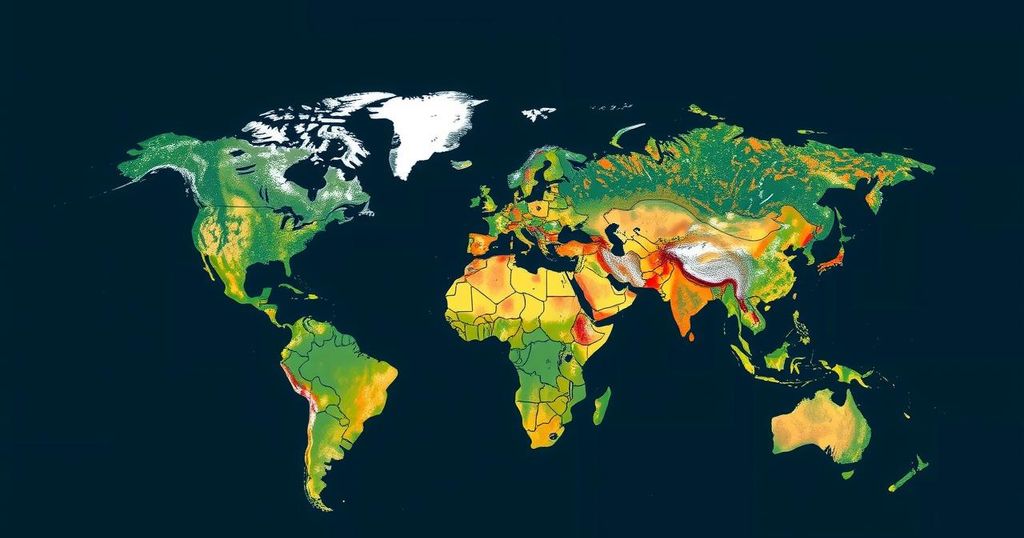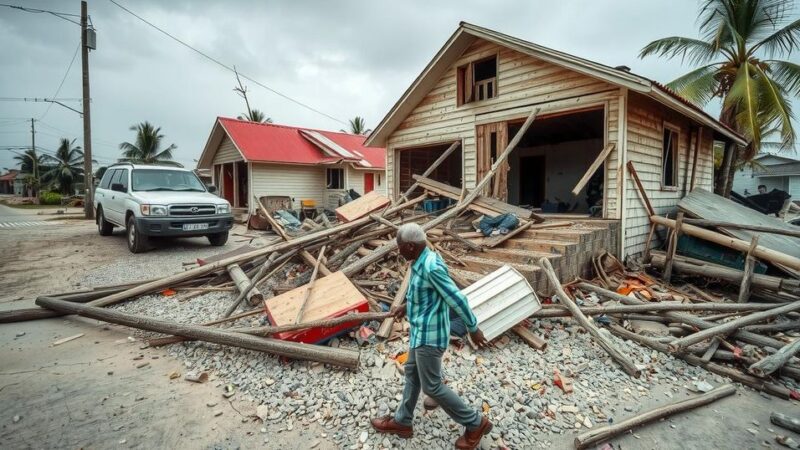This article discusses the rising importance of climate security in shaping U.S. foreign policy against the backdrop of growing climate challenges. The Wilson Center hosted a panel featuring experts who addressed the interplay between climate change and security risks, insights from two notable books, and the need for global cooperation to strengthen stability through climate action.
The impact of climate change has become an urgent theme in discussions concerning global security and foreign policy. Extreme weather events such as unprecedented heat waves and floods are increasingly undermining community resilience, amplifying risks of conflict, and exacerbating socio-economic inequalities. In light of these challenges, nations have made commitments towards a global energy transition, although this endeavor brings its own potential geopolitical complications. A comprehensive understanding of the interrelationships among climate change, conflict, and peace is now a top priority at both national and international levels, as highlighted in the recent COP28 Declaration addressing Climate, Relief, Recovery, and Peace. On October 1, the Wilson Center, in collaboration with the Center for Climate & Security, convened a significant dialogue focusing on these pressing issues. The panel featured key voices in climate security, including Sherri Goodman, an authoritative figure in the field, alongside environmental journalist Peter Schwartzstein, Middle East specialist Merissa Khurma, and Assistant Secretary for the Bureau of Conflict and Stabilization Operations at the U.S. Department of State, Anne Witkowsky. Collectively, they aimed to dissect the ramifications of climate change on global security dynamics and explore the evolution of U.S. policy concerning climate security. Moreover, the participants drew upon insights from two newly authored books: Sherri Goodman’s forthcoming work, “Threat Multiplier: Climate, Military Leadership, and the Fight for Global Security,” set to release in 2024, and Peter Schwartzstein’s “The Heat and the Fury: On the Frontlines of Climate Violence.” The discussion promised to deepen our understanding of how climate action can not only mitigate risks but also foster stability and international cooperation.
The recent surge in climate-related events has underscored the precarious nature of global security. Acknowledging the multifaceted impacts of these environmental changes is essential for policymakers, as climate change does not merely threaten the environment but also fuels socio-political tensions. The commitment of international entities to prioritize climate security reflects a growing recognition of these realities. The COP28 Declaration emphasizes the need for a collaborative approach to address the nexus of climate change and security, signaling a shift in how nations engage with these interconnected challenges.
In conclusion, the dialogue on climate security highlighted the urgent need for collaborative global efforts to address the complexities posed by climate change. The intersection of climate, conflict, and peace necessitates a proactive approach within U.S. foreign policy, laying the groundwork for enhanced resilience, stability, and international cooperation. The insights shared during the discussion and the literature presented mark significant contributions to the understanding of environmental security and the adaptation of foreign policy frameworks in response to these growing challenges.
Original Source: www.wilsoncenter.org







